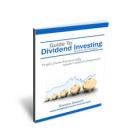When investors buy shares hoping only for capital appreciation, they set themselves up for failure. They give up the increasing income they could have been receiving from companies that pay dividends.
Investors chasing after capital gains can't actually secure their "gains" or receive their "returns" until and unless they actually sell the shares. But then they lose out on future "gains" and "returns."
"The entire investing world is missing something very elementary," according to Steven Dotsch, author of the Guide to Dividend Investing.
“To profit from capital gains appreciation, you have to sell the shares. Then you no longer have them. Then you're back in cash. To stay invested, you must find another stock market winner. Research shows that a matter of luck, not skill."
On February 8, 2011, the FTSE100 index closed at 6,091. However, the index first broke that level on July 14, 1998 when it closed at 6,100. With the FTSE100 currently trading in a tight range of between 5,800 and 6,000, the stock market has gone nowhere for nearly fourteen years.
That means that, for nearly fourteen years, capital gains "growth" stock buy-and-hold investors have seen their portfolios go nowhere. This would be true even if the market had not crashed in 2001-2002 and 2007-2009.
However, during the same period, dividend income investors have received a steady stream of income and dividend checks, often increasing every year. If they re-invested their earnings, they've continued to add to their portfolios, increasing the number of shares they own and therefore also increasing their incomes from those shares.
And even if they spent the income, they received a real, tangible return on their money -- and they still own their original shares. Interest rates fluctuate, yet most dividend paying stocks increase their dividends periodically. Some even have a long history of raising them annually.
When ISA’s launched in 1999 the Bank of England base rate was 5.5% while inflation was 1.6% and falling. Today, base rate stands at 0.5%, and inflation at 3.4%, still well above the Bank’s 2% target. Anyone holding cash is likely to be subject to a negative return after accounting for inflation.
Today the case for investing in inflation beating dividend paying shares is as strong, if not stronger, than ever. Earning money with dividends from high quality companies is the easiest…
Whilst I support dividend investing, and it's an important element of my portfolio, I strongly disagree with some parts of the article:
To stay invested, you must find another stock market winner. Research shows that a matter of luck, not skill.
Please provide a reference. Whilst that may true, statistically, on a random sample of investors I think it's b*****cks. Correction: I know it's b*****cks when applied to a skilled individual investor. My 3 largest ever gains were made on companies that do not pay dividends:
- Extract Resources (and companies related to it whose shares were trading at a considerable discount to assets).
- Encore Oil
- LoQ
All increased in share price more than 8 fold within 3 years. All were companies that I had sound reasons to believe where trading at a price considerably below their intrinsic value, at the time I bought them. Of course, I have picked plenty of "duds" too, but the gains have considerably outweighed the losses.
As I have done this over a period of more than 25 years, I cannot believe that it is simply down to "luck" (though random events do significantly affect short term performance). I also think it's notable that those large "wins" have all come in recent years (though I was already profitable before that), as my knowledge of investing has improved, and I feel I am better able to assess risk/reward.
On February 8, 2011, the FTSE100 index closed at 6,091. However, the index first broke that level on July 14, 1998 when it closed at 6,100. With the FTSE100 currently trading in a tight range of between 5,800 and 6,000, the stock market has gone nowhere for nearly fourteen years.
That means that, for nearly fourteen years, capital gains "growth" stock buy-and-hold investors have seen their portfolios go nowhere.
No it doesn't. It would only be true if you assumed that growth stocks selected only performed in line with the market. Sound, non-speculative, stocks like RIT Capital Partners PLC (LON:RCP) and HgCapital Trust (LON:HGT) have multiplied in value over the time period indicated. Whilst HGT pays a dividend, that is not its aim and the dividend cannot be relied upon - it depends on dividends and realisations from investee companies. RCP pays a minimal dividend, as its focus is also capital preservation and capital growth.
Today the case for investing in inflation beating dividend paying shares is as strong, if not stronger, than ever. Earning money with dividends from high quality companies is the easiest way I know of to generate a generous and steady flow of dependable cash.
Now, there I agree. IMO there are some great divvy paying bargains out there right now. If dependable income is your aim, a portfolio of good divvy paying stocks is hard to beat, right now. I currently have 18.5% of my asset allocation in that category at a weighted average historic yield of 6.5% (and a further 10% in fixed interest yielding 8.3% at present). That suits my personal circumstances.
Dividend investing is a very useful approach (when accompanied by sound value investing principles), but claiming it's the only approach likely to lead to positive returns simply isn't true. Not all investors are "one club golfers".
Regards,
Mark





